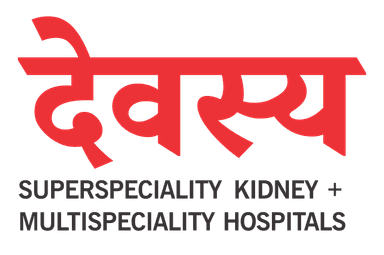Kidney Cancer Treatments & Surgery
Why choose Devasya Hospital for kidney cancer treatment?
Devasya Hospital is a renowned medical institution that stands out as a leading destination for kidney cancer treatment and surgery. With a steadfast commitment to excellence in healthcare, Devasya Hospital offers state-of-the-art facilities and a highly experienced team of medical professionals specializing in oncology and surgical procedures.
For radical nephrectomy, Devasya Hospital provides a comprehensive approach tailored to each patient's unique needs. The hospital's skilled oncologists carefully evaluate the cancer's stage, considering the latest advancements in medical science to determine the most suitable treatment plan. Whether it's a nephrectomy, including partial or radical approaches, or cytoreductive nephrectomy for metastatic kidney cancer, Devasya Hospital is the best hospital for kidney cancer surgery that ensures that patients receive personalized, evidence-based care.
Devasya Hospital's dedication to patient well-being extends beyond surgical excellence. We prioritize the holistic health of their patients, offering support services and resources to aid in the healing process.
Choosing Devasya Hospital for kidney cancer treatment means entrusting your care to a facility renowned for its medical expertise, advanced technology, and compassionate approach to patient care.
FAQs
The exact cause of kidney cancer is often not clear, but certain risk factors can increase the likelihood of developing the disease. These risk factors include smoking, obesity, high blood pressure, family history of kidney cancer, certain genetic conditions like von Hippel-Lindau (VHL) syndrome, and long-term dialysis treatment. However, it's important to note that having one or more risk factors does not necessarily mean a person will develop kidney cancer.
To diagnose kidney cancer, various tests and procedures may be used. Common diagnostic tests include imaging studies such as CT scans, MRI, or ultrasound to visualize the kidneys and detect tumors. A biopsy may also be performed, where a small tissue sample is taken from the kidney to examine it for cancer cells. Blood and urine tests may help assess kidney function and identify specific markers that could indicate the presence of cancer.
In its early stages, kidney cancer may not cause noticeable symptoms. However, as the disease progresses, common signs and symptoms may include blood in the urine (hematuria), persistent back pain or pain in the side, a lump or mass in the abdomen or side, unexplained weight loss, fatigue, fever, and swelling in the legs or ankles. It is essential to seek medical attention if any of these symptoms are present, as early detection can lead to better treatment outcomes.
Managing the side effects of kidney cancer treatment is essential for maintaining the patient's quality of life. The specific side effects and their management will vary depending on the type of treatment. For example, surgery may require pain management and wound care. Targeted therapies and immunotherapies may have side effects such as fatigue, nausea, or skin rashes, which can be addressed with medications or lifestyle adjustments. Open communication with the healthcare team is crucial to address any side effects promptly and make necessary adjustments to the treatment plan.
Complications of kidney cancer can include the spread of cancer to other organs or tissues (metastasis), recurrence of the cancer after treatment, kidney failure if both kidneys are affected, and side effects from treatments. In advanced cases, kidney cancer can cause significant health issues as it affects other organs and systems in the body.
While it may not always be possible to prevent kidney cancer entirely, certain lifestyle changes and risk reduction strategies may help lower the risk. These include avoiding tobacco use and exposure to secondhand smoke, maintaining a healthy weight through diet and exercise, managing high blood pressure, and staying hydrated by drinking plenty of water. Regular check-ups and early detection of any abnormalities can also improve the chances of successful treatment if kidney cancer does develop.
It's important to remember that any concerns or suspicions related to kidney cancer should be discussed with a healthcare professional for proper evaluation, diagnosis, and appropriate management.



